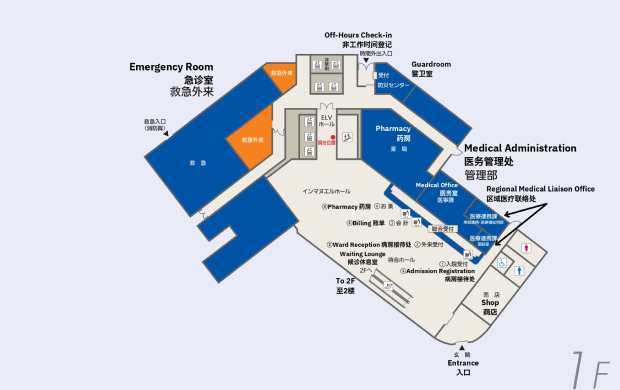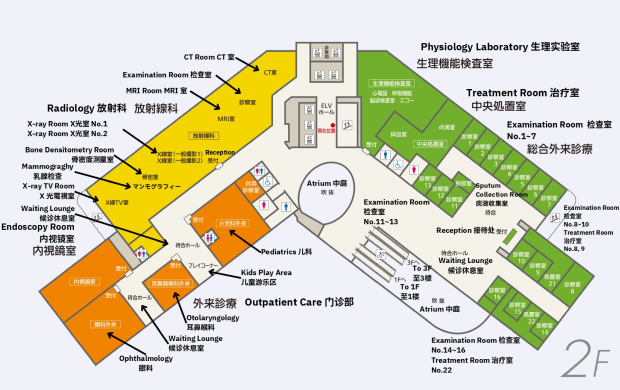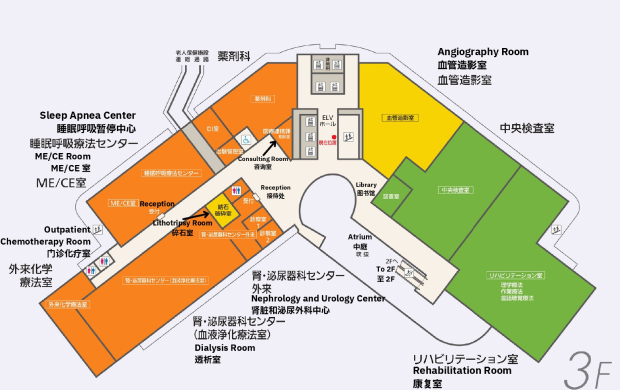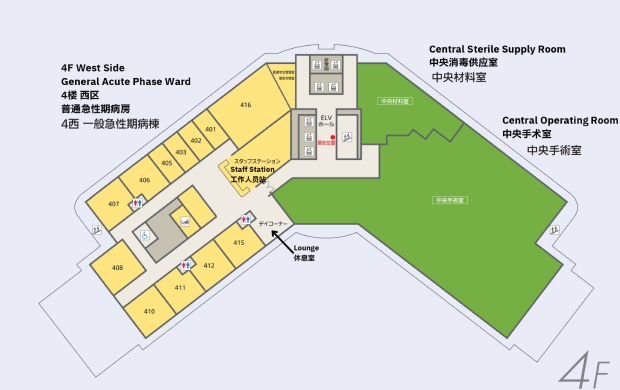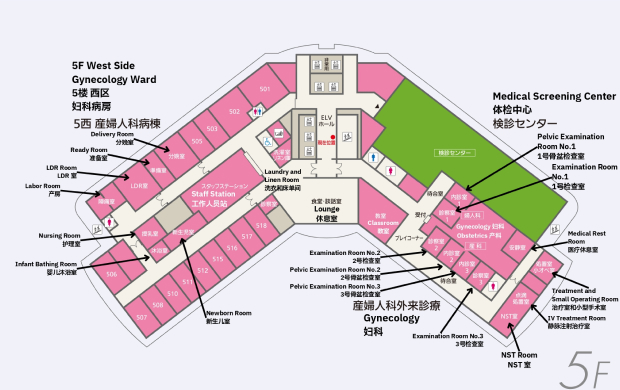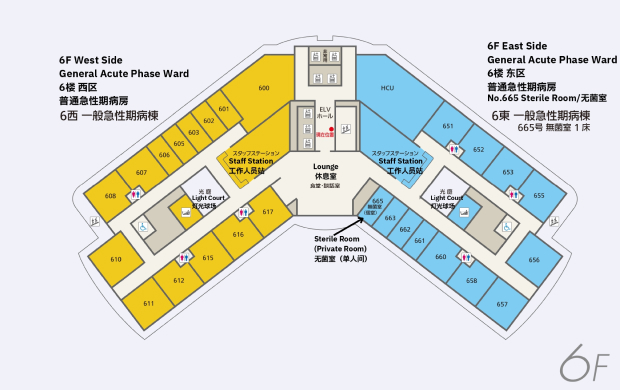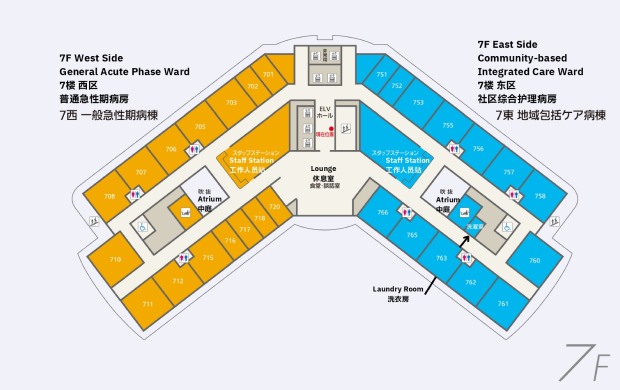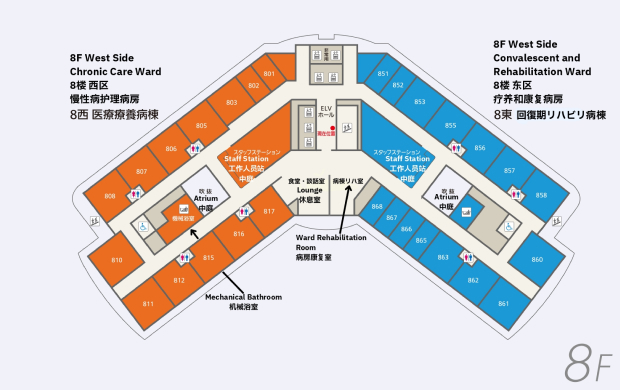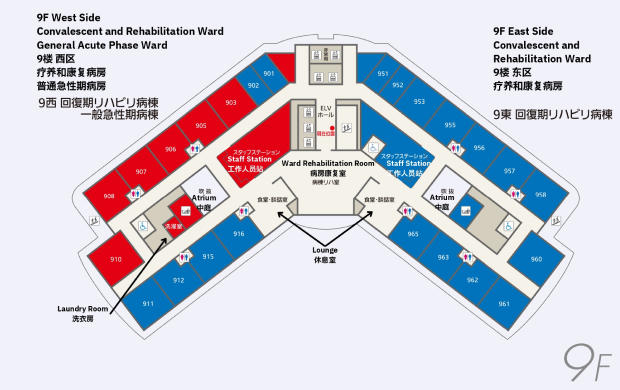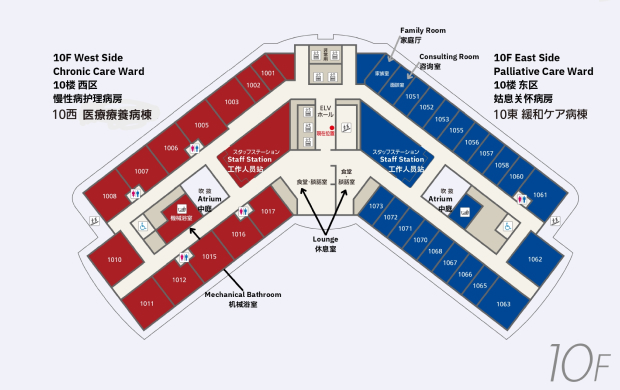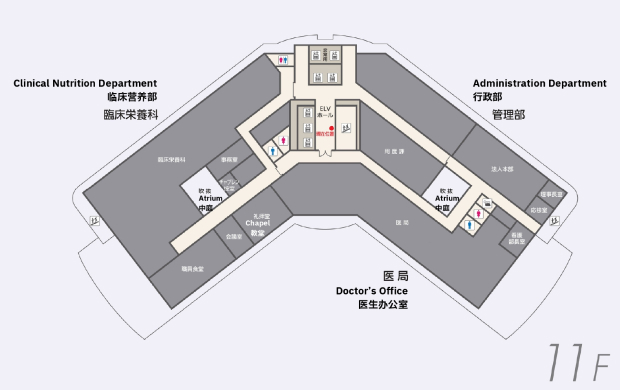Osaka Gyomeikan Hospital English Website
1. Basic Philosophy
Osaka Gyomeikan Hospital aims to be a hospital where local residents can feel a strong sense of connection through holistic medical care based on Christian principles.
Action Guidelines for Our Staff:
- ・ We provide safe and high-quality medical care by maintaining the best facilities and environment.
- ・ We practice compassionate medical care by treating everyone with love and respect, and by working together to determine the best course of action.
- ・ We collaborate with healthcare and nursing care providers in the community to protect the health and lives of local residents.
- ・ We contribute to society through medical self-improvement and sound hospital management.
2. Chairman & Hospital Director's Message
History and Role: Our hospital was founded in 1947, building upon the "Osaka Gyomeikan" established in 1915 as a simple lodging for laborers, and later evolving through the opening of a low-cost clinic. For over 70 years, we have been providing medical care in this region, and we have grown into one of Osaka's largest hospitals with a total of 462 beds.
Role as a Core Hospital: Following the closure of Osaka City Kita Citizen's Hospital in 2010, we have assumed the role of a core general hospital in this area. We not only provide 24-hour, 365-day acute care but also have specialized centers such as the Kidney and Urology Center, Cardiovascular Center, and Spine and Spinal Cord Center, enabling us to provide advanced medical care.
Care-Mix Hospital: In addition to general and obstetrics/gynecology wards, we allocate many beds to rehabilitation wards for recovery, community comprehensive care wards, medical long-term care wards, and palliative care wards. We aim to further enhance regional medical care as a "care-mix" hospital, integrating nursing care and welfare to meet all diverse medical needs of the community.
3. Patients' Rights
- ・ The right to receive appropriate medical care.
- ・ The right to make decisions about treatment plans after receiving sufficient explanation.
- ・ The right to seek opinions from other medical professionals (Second Opinion).
- ・ The right to have one's privacy protected.
4. Hospital Map (In-Hospital Map)
5. Consultation Hours
Morning Consultations:
- ・ Registration Starts: 8:30 AM
- ・ Consultation Starts: 9:00 AM
- ・ Registration Ends: 11:30 AM
Afternoon Consultations:
- ・ Registration Starts: 12:45 PM
- ・ Consultation Starts: 1:00 PM
- ・ Registration Ends: 3:00 PM
Visiting Hours:
- ・ Monday - Saturday: 2:00 PM - 8:00 PM
- ・ Sunday & Public Holidays: 11:00 AM - 8:00 PM
Each visit is limited to within 30 minutes. Please note that visiting rules may be subject to change due to infection control measures (currently, visits are generally restricted).
6. Outpatient, Emergency Outpatient, Inpatient: How to receive consultation, what to bring, precautions, visiting hours/rules, consultation fees
How to Receive Consultation (Outpatient):
It is generally recommended to have a referral letter for your first visit, but it is possible to receive a consultation without one (additional fees may apply).
Reception Hours:
- ・ Monday - Friday: 9:00 AM - 5:00 PM
- ・ Saturday: 9:00 AM - 1:00 PM
- ・ Closed on Sundays and public holidays.
FAX operates 24 hours, but requests received outside business hours or on holidays will be processed on the next business day.
Main Telephone Number:
+81-6-6462-0261
What to Bring (Common for Outpatient/Inpatient):
- ・ Health Insurance Card (if you have Japanese health insurance)
- ・ Medicine Handbook (if you have one)
- ・ Various documents (e.g., referral letter)
What to Bring (For Inpatients):
- ・ Various tableware (cups, spoons, chopsticks, eating bibs, drool cloths, toothbrushes, etc.)
- ・ Change of clothes, underwear
- ・ Towels (hand towels are not necessary)
- ・ Diapers, baby wipes
Precautions / Important Notes (General & Pending Information):
- ・ If you do not bring a health insurance card, you may be responsible for the full cost of medical treatment.
Visiting Rules (Inpatient):
- ・ For infection prevention, please cooperate by wearing a mask and sanitizing your hands.
- ・ Eating and drinking during visits are prohibited.
- ・ Visiting may be restricted depending on the patient's condition.
- ・ For inquiries about hospitalized patients by phone, we generally do not provide information due to personal information protection.
- ・ Currently, the general policy is to restrict visits to inpatients.
Examples of unavoidable circumstances for visits: 1) Accompanying during admission or discharge, 2) When the doctor deems it necessary for special reasons such as explaining the patient's condition. When bringing in luggage or laundry, please inform the ward staff. Visitors under unavoidable circumstances will have their temperature checked in the ward.
Emergency Outpatient:
- ・ The hospital provides 24-hour, 365-day acute care.
Information for International Visitors
- ・ Refusal of Medical Treatment for Medical Tourism: Please be aware that, with the exception of emergency cases, we may decline to provide medical care to individuals traveling to Japan primarily for medical purposes.
- ・ Full Cost Bearing for Non-Japanese Health Insurance Holders: If you are not enrolled in the Japanese health insurance system, you will be responsible for 100% of your medical expenses.
- ・ Upfront Payment for Non-Japanese Health Insurance Holders: If you are not enrolled in the Japanese health insurance system, an upfront payment of 40,000 yen will be collected at the reception desk. This amount will be settled against all charges (medical fees, document fees, interpretation fees, etc.) at the time of billing. Any remaining balance will be refunded.
- ・ Payment Options: Credit card payments are accepted.
- ・ Travel Insurance: Overseas travel insurance can be utilized.
- ・ Identification Requirement: A valid identification, such as a passport, is required for your consultation.
- ・ Requirement for Medical Interpreter: A medical interpreter is required for your consultation.
- ・ Interpreter Fee for Unaccompanied Visitors: If you do not have a medical interpreter accompanying you, a 35,000 yen interpreter fee will be charged for interpretation services provided by the hospital.
- ・ Translation Fee for Documents: For the issuance of documents such as medical certificates, a translation fee of 6,000 yen per A4 page will be charged.
For more details, please click here.
7. Access / Transportation
Address:
5-4-8 Nishikujo, Konohana-ku, Osaka-shi, Osaka 554-0012, Japan
By Train:
- ・ JR / Hanshin "Nishikujo Station": Approximately 3 minutes walk.
- ・ Nishikujo Station Exit 1 (Hanshin Line): Approximately 5 minutes walk.
- ・ Chidoribashi Station: Approximately 10 minutes walk.
- ・ Noda Station (Osaka Loop Line): Approximately 16 minutes walk.
By Bus:
- ・ Nishikujo (Bus Stop): Approximately 4 minutes walk.
- ・ Konohana Asahibashi: Approximately 6 minutes walk.
- ・ Noda 6-chome (Osaka Prefecture): Approximately 7 minutes walk.
By Car:
- ・ From Hanshin Expressway Route 3 Kobe Line, Ebie Exit: Approximately 7 minutes.
- ・ From Wakayama Area: Take the Bayshore Route (Wangan-sen) and exit at Hokko JCT. Proceed straight east on Hanshin Route 2 Yodogawa-sagan Line (Yodogawa Left Bank Line) along Hokko-dori. Turn towards Nishikujo at the Chidoribashi intersection, then turn left at the Nishikujo intersection. Osaka Gyomeikan Hospital will be on your left.
8. Frequently Asked Questions (FAQ)
- ・ For questions requiring a doctor's judgment, please contact your attending physician directly.
- ・ For inquiries about consultation content or appointment changes, please call the hospital's main number (+81-6-6462-0261).





